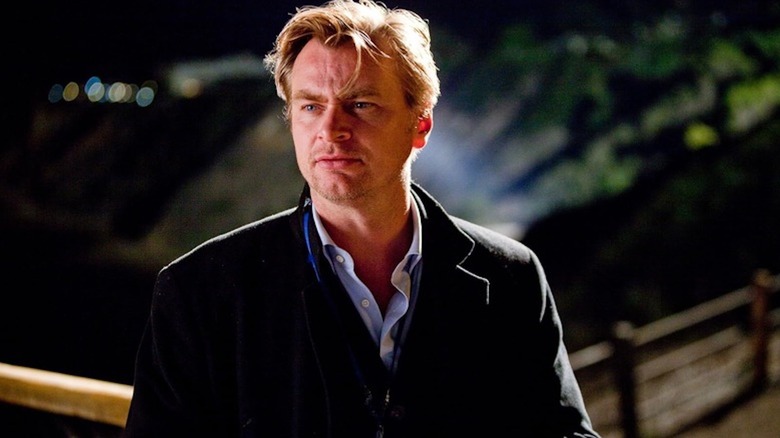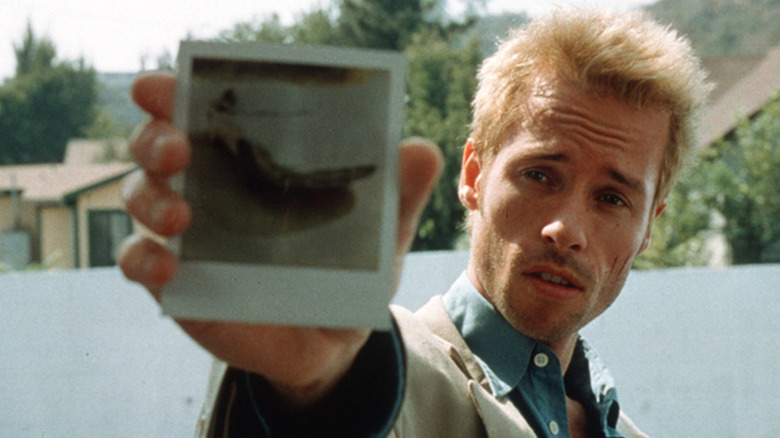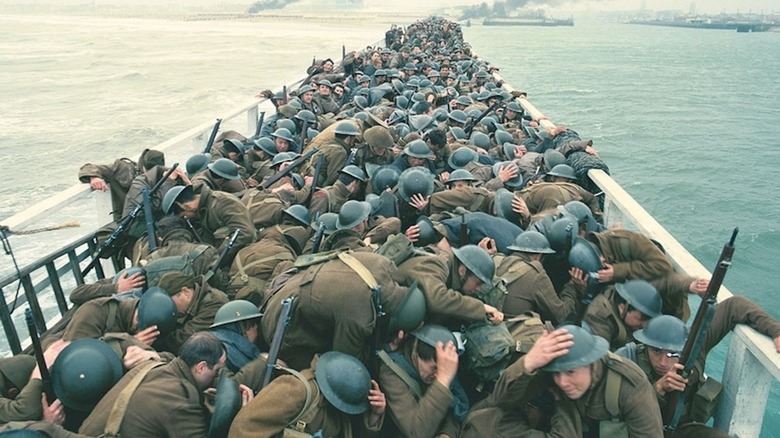
26 years into his career, Christopher Nolan is charging along on one of the most remarkable creative and commercial runs the film industry has ever seen. Since he burst onto the scene with his breakthrough second feature “Memento” in 2001, all he’s done is make one critically acclaimed box office hit after another. Considering the sizable budgets he’s become accustomed to working with, it’s a winning streak that any of our big-swing maestros can’t match. Even Steven Spielberg experienced critical and/or commercial turbulence at this point in his career, with films like “1941,” “Empire of the Sun,” “Always,” and “Hook.” But aside from “Tenet” (which would’ve been a blockbuster had the Covid pandemic not kept the vast majority of moviegoers out of theaters over the summer of 2020), all of Nolan’s films have doubled their production budgets at the global box office, and are currently rated fresh at Rotten Tomatoes.
How best to appreciate what Nolan has accomplished since 1998? You can’t do much better than a complete revisit of all his movies — or, if you’ve somehow denied yourself the pleasure, a first-time journey through his cinema. In what order should you view his 12 completed features? You might figure chronologically is the way to go, but there is a more interesting and perhaps edifying approach.
Christopher Nolan’s movies in the best viewing order
If you want to maximize your Christopher Nolan viewing experience, you should choose this path:
“Memento” (2000)
“Following” (1998)
“Insomnia” (2002)
“Batman Begins” (2005)
“The Dark Knight” (2008)
“The Dark Knight Rises” (2012)
“The Prestige” (2006)
“Inception” (2010)
“Interstellar” (2014)
“Dunkirk” (2017)
“Tenet” (2020)
“Oppenheimer” (2023)
Though there are far more prolific filmmakers out there (like Steven Soderbergh, who has two features hitting theaters within months of each other in 2025), Nolan has worked steadily throughout his career. He’s never gone more than three years between movies, which is about the span of time it takes to develop and mount films on the massive physical scale of “Dunkirk” and “Tenet.” At the age of 54, he’s showing no signs of slowing or scaling down, as evidenced by his just-announced 2026 epic adaptation of Homer’s “The Odyssey.”
So why not just go in chronological order like a sane person?
Why this is the correct order to watch Nolan’s films
The first four-film leg of the above order is meant to replicate how moviegoers discovered and came to understand Nolan’s visual storytelling aesthetic. You’ll never be able to fully recapture the utter shock and awe of “Memento” quietly turning up in theaters during the spring of 2001, but when you throw it on just imagine that you walked into some modestly budget neo-noir starring Guy Pearce (best known at the time for “L.A. Confidential”) and Carrie-Anne Moss (Trinity from “The Matrix), and having it slowly dawn on you that you’re watching a perfectly constructed puzzle of a movie. Nolan was a nobody at this point. So when we learned that this was his second feature, we all went wild trying to track down the then hard-to-find “Following” — which, while a much smaller, less narratively ambitious film, was still impressive.
Then came Nolan’s first crack at a Hollywood picture with a straightforward, yet superbly crafted remake of the Norwegian thriller “Insomnia,” at which point we realized this man had the command of craft to thrive at the studio level — and, via “Batman Begins,” the smarts and skill to play in the franchise sandbox without losing his creative identity.
At this point, you’ll want to knock out Nolan’s next two Batman movies because, while visually stunning and well above average for superhero movies, this trilogy is the least interesting portion of his career. So after “The Dark Knight Rises,” you’ll backtrack to 2006’s “The Prestige,” his intricately plotted magician thriller that some Nolan-philes consider to be his finest work to date. Then you’ll move on to his other Batman-break movie, “Inception,” which emphatically proved Nolan was a brand-name filmmaker who could deliver blockbuster crowds without the comic book hook.
Finally, you’ll proceed chronologically with “Interstellar” (my pick for his best at present), “Dunkirk” (which should’ve been his first Oscar), “Tenet” and the conscience-pricking, Academy Award-winning biopic “Oppenheimer.” If Nolan isn’t your favorite filmmaker by this point, you’ll at least be able to admire the stunning assurance with which he moves from epic to epic. David Lean couldn’t do it any better. And it sounds like “The Odyssey” just might be his most massive undertaking yet. Serious moviegoers are lucky to have him.




Leave a Reply